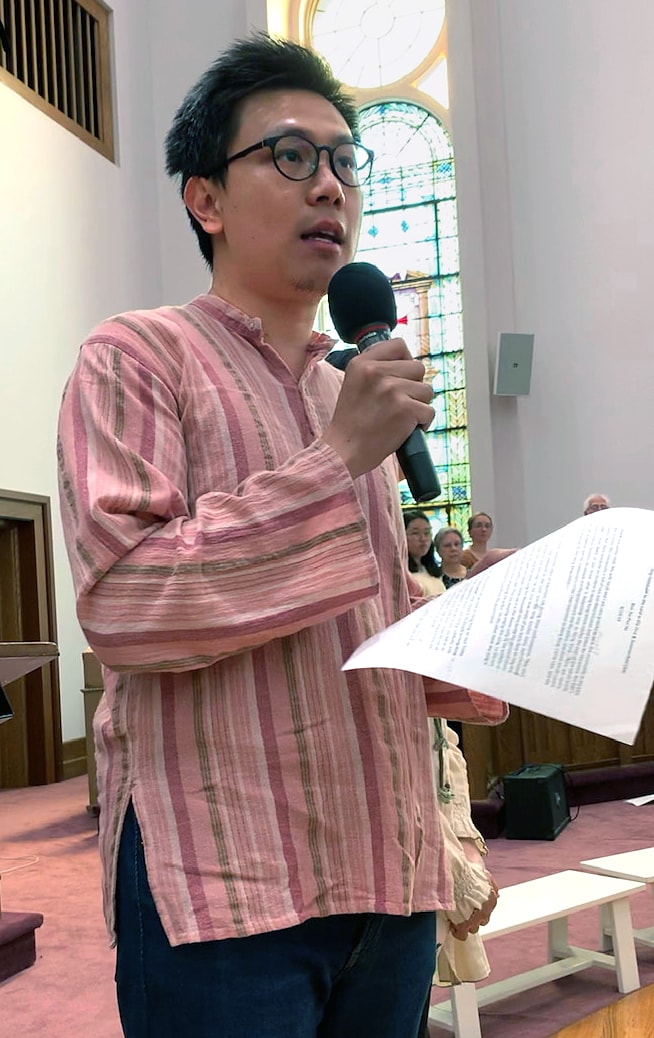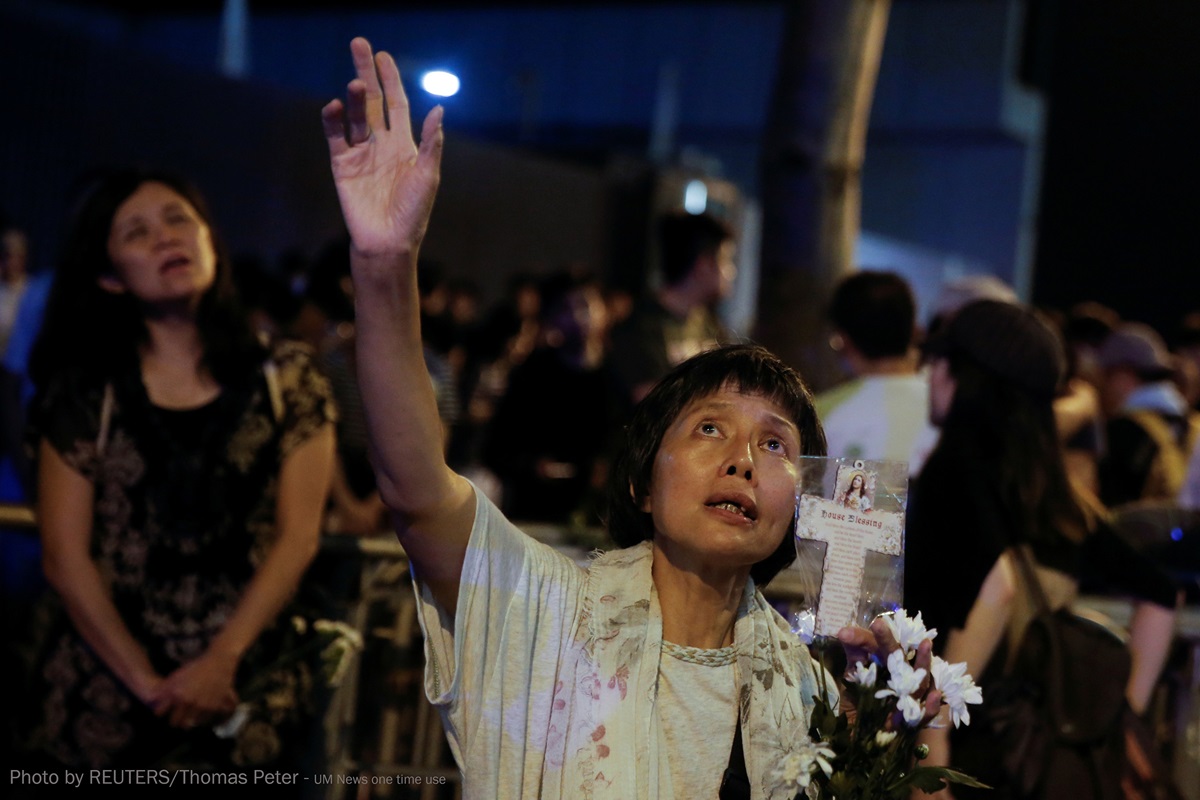A Christian hymn has become the focal point for Hong Kong protesters who gathered for three major demonstrations against a proposed law that would allow extraditions to mainland China.
For Ben Ho — a Methodist from Hong Kong — the adoption of “Sing Hallelujah to the Lord” by protesters and the hymn’s impact on defusing tensions has been nothing short of miraculous.
“This song becomes the anthem of the whole movement,” Ho told UM News. He has spent the past two semesters as a doctoral exchange student at the Yale University Divinity School.
The 36-year-old Ho and his wife, Sarah Yeung, have shared their perspectives about the situation in Hong Kong as part of the worshipping community at First and Summerfield United Methodist Church in New Haven, Connecticut. They also have been active in its student ministry, said the Rev. Vicki Flippin, pastor.
“Our congregation has long understood following Jesus to be inseparable from participation in liberation movements in our own community and around the world, and our church has shared in both the concern and hope that Ben and Sarah feel during this moment of turmoil on the streets of Hong Kong,” Flippin said.

Three massive demonstrations occurred over an eight-day period in June in the wake of fears that the extradition proposal would undermine Hong Kong’s rule of law. Ho said he expects further protests on June 26 and 28 and on July 1, which marks the date in 1997 that the sovereignty of Hong Kong was returned to China.
The crowd’s adoption of a U.S. hymn composed for Easter in 1974 by Linda Stassen-Benjamin — known as No. 2258, “Sing Alleluia to the Lord,” in the United Methodist hymnal collection “The Faith We Sing” — seemed unlikely, as a Reuters news story pointed out.
Ho, monitoring events in Hong Kong from New Haven, agreed. “For me, it’s a miracle.”
What happened, he said, was that a group of pastors organized a 72-hour prayer vigil for the situation in Hong Kong. On the night of June 11, after the prayers, some people started to sing the hymn, which has a simple, repetitive chorus: “Sing hallelujah to the Lord, sing hallelujah to the Lord, sing hallelujah, sing hallelujah, sing hallelujah to the Lord.”
That night, Ho added, “Amazingly, when they sing, they cannot stop. They sing for the whole night, about nine hours.”
The idea was to “make people peaceful and relax the tensions,” Ho said. But the anthem also has provided a spiritual support, he noted, as the protesters continue to demand action from the Hong Kong government and its chief executive, Carrie Lam.
Another concern of the protesters “is the overuse and abuse of power by the police,” Ho said. Human Rights Watch and others criticized the Hong Kong police for using excessive force, including tear gas and rubber bullets, to disperse protesters on June 12.
Their demands have support from some top Christian leaders. Both Cardinal John Tong, Catholic Diocese of Hong Kong, and the Rev. Eric So, chairman of the Hong Kong Christian Council, have called on Lam to withdraw the extradition bill and begin an independent inquiry into the police response to the protests, the New York Times reported.
The Chinese Methodist Church in the Wan Chai district is famous among both Christian and non-Christian protesters, Ho said, because of its geographic location on a fixed route for political demonstrations. “This church, for many Hong Kong people, becomes a kind of resting place,” he said.
Chinese Methodist Church served that purpose, for example, in 2014, during the student-led, pro-democracy demonstrations that grew into the “Occupy Central/Umbrella Movement.”
Ho, who said he has many good friends at the Chinese Methodist Church, became a Methodist about the same time. A Christian since childhood, he previously was part of a “very conservative” church, he noted, but later became attracted to Methodism and its commitment to engage in social issues. He is a member of the Methodist church in the Shatin district.
That desire to know more about what faith means in Hong Kong society also has led to his post-graduate religious studies. Ho expects to finish a doctorate in Christianity and theological studies at Chinese University of Hong Kong within the next year.
Before moving back to Hong Kong on June 28, Ho and Yeung were inspired to use the “Sing Hallelujah” anthem as a way for First and Summerfield Church to engage in an act of solidarity with the people of Hong Kong and shared their idea with the pastor.
Churches in other parts of the world have done the same. “The whole thing is arousing international attention,” Ho explained, noting that the anthem not only refers to events in Hong Kong but also “is about justice and the real peace.”
First and Summerfield’s congregational hymn sing at the end of Sunday worship June 23 was recorded as a video for the church’s Facebook page. “It was a touching way for us to say goodbye to these siblings in Christ,” Flippin said.
Bloom is the assistant news editor for United Methodist News Service and is based in New York.
Follow her at https://twitter.com/umcscribe or contact her at 615-742-5470 or newsdesk@umcom.org. To read more United Methodist news, subscribe to the free Daily or Weekly Digests.
Like what you're reading? Support the ministry of UM News! Your support ensures the latest denominational news, dynamic stories and informative articles will continue to connect our global community. Make a tax-deductible donation at ResourceUMC.org/GiveUMCom.




